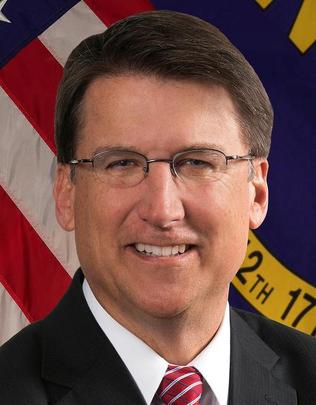PSC Approves Increase in Bloom Energy Subsidy

Bloom Energy enjoys a 21-year deal under a 2011 law that guarantees revenue for power generated from its 30-MW fuel cell operation. In exchange, Bloom has to guarantee jobs and an ongoing operation in Delaware. Bloom currently receives about 16.687 cents/kWh, more than Delmarva’s 10.75-cent/kWh advertised rate.
More: The News Journal
ILLINOIS
ComEd Unveils 11th-Hour Clean Energy Bill

ComEd’s bill, introduced by Sen. Kimberly Lightford (D-Maywood) and Rep. Bob Rita (D-Blue Island) aims to foster growth in clean energy for households, such as solar power, and for microgrids to provide greater reliability and resiliency.
The utility also proposes a $100 million program to build 5,000 Chicago-area electric vehicle charging stations.
Some suspect the bill is intended to build support for other legislation backed by ComEd parent Exelon, which would create a ratepayer surcharge to subsidize carbon-free nuclear power. (See Exelon-Backed Bill Proposes Surcharge to Fund Illinois Nukes.) Environmentalists and green energy advocates are supporting a third bill they say would create tens of thousands of new jobs by boosting state goals for renewable power and energy efficiency.
More: Crain’s Chicago Business
IOWA
Senate Likely To Allow IUB Selection to Stand Without Investigation

Senate Democrats say they won’t challenge the appointment of Geri Huser to chair the Utilities Board.
Gov. Terry Brandstad picked Huser, identified as a business-friendly former state representative, to succeed Republican Libby Jacobs as board chairwoman. Jacobs will remain on the three-person board. Sheila Tipton, a Democrat with a legal background in utilities regulation, was not reappointed.
Huser’s appointment came a month after the board ordered MidAmerican Energy to refund $2 million to customers. A MidAmerican Energy executive confirmed that the company recently met with the governor and criticized the refund decision. (See MidAmerican’s Fingerprints on Shakeup of Iowa Utilities Board?)
More: The Des Moines Register
KANSAS
Renewables’ Tax Exemption to be Limited to 10 Years
A bill before the Senate Assessment and Taxation Committee would put a 10-year limit on property tax exemptions for renewable power projects.
The incentive has been in place since 1999, but the proposal would modify the tax breaks so that they would expire 10 years after the launch date of each project. The Kansas Division of the Budget estimates that existing renewable power projects would pay about $18 million annually in taxes in 2025, which could be used for school funding.
The proposal to end the unlimited tax break amounts to “bait and switch,” said Jeff Riles, manager of regulatory of affairs for Enel Green Power North America. Supporters say the incentive attracted many wind, solar and other renewable energy projects to Kansas.
More: Associated Press
MAINE
Missing “And” Cuts Efficiency Investments by $36 Million

The early version of the bill that created the Efficiency Maine Trust stated that funding would be determined by “total retail electricity and transmission and distribution sales.” The adopted legislation stated funding would be based on “total retail electricity transmission and distribution sales.”
The result is that electricity supply sales are not included, decreasing funding from $59 million to $23 million. Two of the three PUC members say the program should be funded exactly as the legislation stated. Energy efficiency advocates are contemplating a legal challenge to restore the $36 million “and.”
More: Bangor Daily News
MANITOBA
Manitoba Man Can’t Stop Tx Lines Across Property
A Manitoba man who bought 50 acres outside the small town of Richer, Manitoba, is upset that Manitoba Hydro is planning to erect 200-foot transmission towers on his property, part of its proposed Manitoba-Minnesota transmission line.
“It never would have dawned on me that Manitoba Hydro could just come and say, ‘Hey, we’re cutting your property in half and taking some of it and there’s absolutely nothing you can do about it,’” Conrad Thiessen said. A company spokesman said he understood Thiessen’s frustration but that “if it’s moved from his property, it may impact four others down the road, and is that any fairer?”
Thiessen said he has contacted his elected officials but so far hasn’t had any luck.
More: CBC News
MARYLAND
Opposition Growing for Proposed 45-Tower Wind Power Project
Opposition is mounting to the proposed Mills Branch Wind Project, which would place 500-foot-tall wind turbines near the Eastern Shore town of Kennedyville.
Opponents to the project, which developer Apex Clean Energy of Charlottesville, Va., said would include 35 to 45 turbines, gathered for an organizational meeting last weekend. They have also launched a website, Keep Kent Scenic.
“With a forest of wind turbines visible up to 25 miles away, Kent County tourism will no longer enjoy its scenic resource, and historic properties and homeowners can expect a big hit on property values,” the organization stated.
More: The Star Democrat
MINNESOTA
Regulators Defer Decision on Xcel’s Request on Solar Gardens

Xcel, which is required under the state’s net-metering law to buy electricity produced by the small solar cooperatives at a set price, argued that solar gardens more closely resemble utility-scale operations, whose output would be put out for a bid at a lower price competitive with wholesale markets.
The commission said it has decided “at this time” not to limit the size of solar gardens. “Potential adjustments, if any, to the program will be fully evaluated” in a few months, said a PUC official.
More: Minneapolis Star-Tribune
MISSOURI
City, Coalition Want to Revisit 40-year Prairie State Contract

Columbia Water and Light procures about a quarter of its power from the coal-fired Prairie State complex under a 2006 contract. But concerns about energy costs and climate change have caused some advocates to rethink the wisdom of the long-term commitment.
“In addition to locking us into burning fossil fuels for the next 40 years, thereby undermining our ability to transition to clean energy, this contract gives us no ability to negotiate the price of the energy we purchase,” City Councilman Ian Thomas said.
More: KOMU
NEW JERSEY
JCP&L Announces Refund Finally – but Storm Costs Eat it Up

The BPU ordered the utility owned by FirstEnergy to refund $115 million for overbilling the costs of transmission system maintenance. But it cut the proposed rebate to about $35 million to allow the utility to recover costs from storms in 2011 and 2012, including Hurricane Sandy.
“I was happy the board upheld their rate decrease, but I was hoping for more,” said Stefanie Brand, director of the Division of Rate Counsel. Monthly bills for residential customers will decrease by about $1.68 a month.
More: The Record
Henkels & McCoy Agrees to Pay $600,000 in Ewing Gas Explosion

The company was repairing a power outage for utility Public Service Electric & Gas when its workers drilled through a mismarked PSE&G natural gas main. The crew did not notify emergency responders about the incident, and hours later an explosion killed the resident of a nearby house where the stray gas had migrated underground.
PSE&G has already agreed to pay $1 million in fines.
More: The Princeton Packet
NORTH CAROLINA
Coal Ash I: Groups Urge Supreme Court to Uphold Duke Ash Cleanup Ruling

Duke, which is appealing the ruling, says the lower court decision became moot after the legislature created a statewide Coal Ash Management Commission that will prioritize the cleanup of four of Duke’s ash pits. But environmental groups say the decision covered all of Duke’s 14 identified pits and required an immediate total cleanup.
The coal ash issue has been front and center in North Carolina. Duke agreed to pay a $100 million fine related to a massive ash leak last year into the Dan River and a $25 million fine for groundwater contamination from its Dutton plant near Wilmington.
More: News & Observer
Coal Ash II: Judges Back McCrory in Coal Ash Commission Make-up

A three-judge Superior Court panel ruled that the General Assembly erred when it created a commission charged with overseeing the cleanup of Duke Energy’s coal ash pits, ruling that the appointment of the commission’s membership was an executive function, not a legislative role.
The judges said lawmakers ignored the mandate for separation of legislative and executive powers when they formed the commission and appointed six of its nine members. House Speaker Tim Moore and Senate leader Phi Berger said they would appeal the ruling.
If it is upheld, the ruling could mean that Gov. Pat McCrory, a former Duke Energy executive, would choose most or all of the commission’s members.
More: Citizen-Times
NORTH DAKOTA
Company that Spilled 2.2 Million Gallons of Brine Proposes New 14-Mile Oil Pipeline

Summit subsidiaries Meadowlark Midstream and Epping Transmission asked the Public Service Commission to approve a plan to convert an existing 10-mile “gathering” pipeline to a transmission pipeline. The company said the oil pipeline is made of stronger materials than the water pipeline and would have increased safety systems, including pressure and flow sensors monitored in a control center. The water pipeline was supposed to be monitored by regular patrols, but that system failed to detect the brine leak for several days.
“I think right-of-way patrolling is something we’ve learned to do probably better,” Meadowlark spokesman John Millar said. “We’re still trying to figure out why with the patrols we did have in place we didn’t see this spill. We think that’s going to be a more prominent part of our surveillance.”
More: Prairie Business Magazine
OHIO
Lawmakers Join to Preserve State Parks from Fracking
Democratic and Republican lawmakers collaborated to prohibit oil and gas development in state parks in draft legislation designed to speed up state permitting for hydraulic fracturing operations.
As a result of last-minute discussions, state parks will be protected, but fracking will be allowed in state wildlife areas and in state forests, although surface disturbances will be prohibited. Nature preserves will continue to be protected.
The General Assembly approved fracking on state lands in 2011, but Gov. John Kasich imposed a moratorium by declining to name anybody to the governing authority, the Oil and Gas Commission. The new legislation will enable the commission to be activated again.
More: Columbus Dispatch
Historic Low Prices Don’t Slow Oil and Gas Drilling in State
The Utica Shale region in Ohio continues to be a hotbed of oil and gas production, despite the plunge in energy prices.
According to the federal Energy Information Administration, the Utica region, along with the Marcellus region to the east and north, will continue to show increased production of gas and oil in the coming months.
“The biggest thing that differentiates Utica from the other regions is Utica is relatively young,” said Jozef Lieskovsky, an analyst for the EIA. Younger wells typically produce at a higher rate than mature wells.
More: Columbus Dispatch
PENNSYLVANIA
PUC Judges Recommend Lower Rate Hike for Met-Ed Customers

The recommendation was part of a larger rate proceeding dealing with FirstEnergy’s four Pennsylvania utilities. The judges recommended increases ranging from 7.4 to 13.1% for West Penn, Penelec and Penn Power.
The Public Utility Commission is set to consider the recommendations at a meeting in May.
More: York Daily Record
VIRGINIA
DEQ Approves NRG’s Cleanup Plan for 17,000 Gallons of Oil at Plant

Officials estimated that 17,000 gallons of fuel oil leaked from the plant’s tanks. NRG said it plans to complete the cleanup over the next three years, and monitor soil and groundwater for two years after that.
The deputy director of Alexandria’s transportation and environmental services said the contaminated groundwater is not near any wells and poses no health threat.
More: The Washington Post
— Ted Caddell


